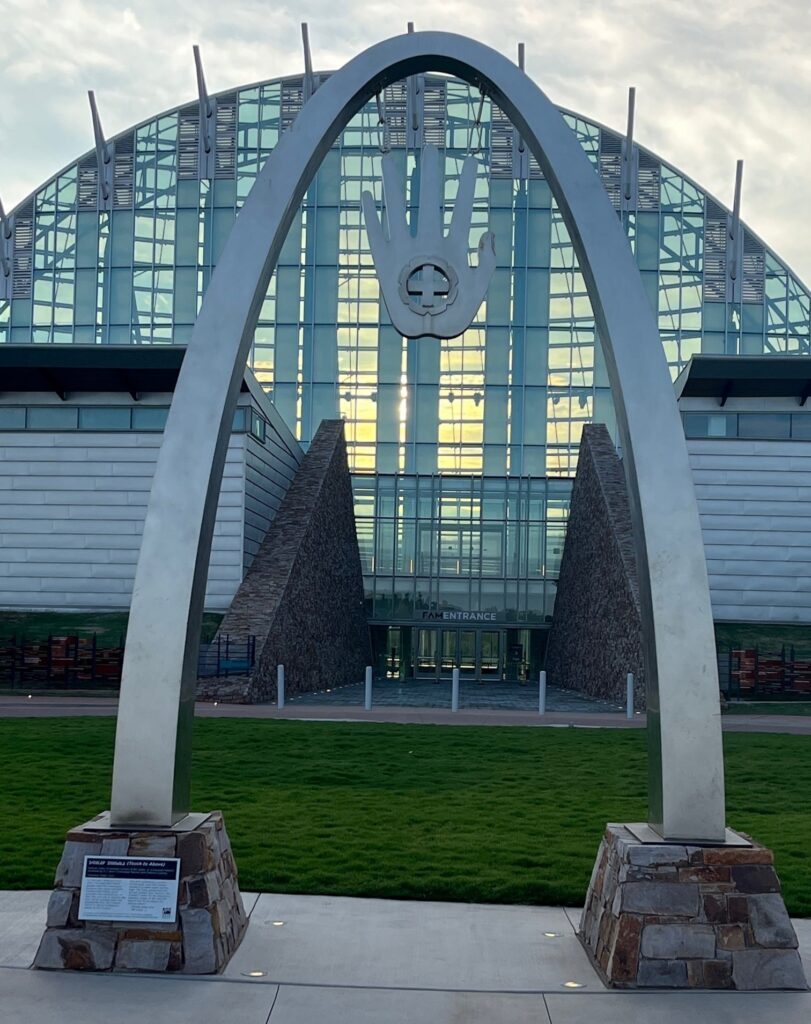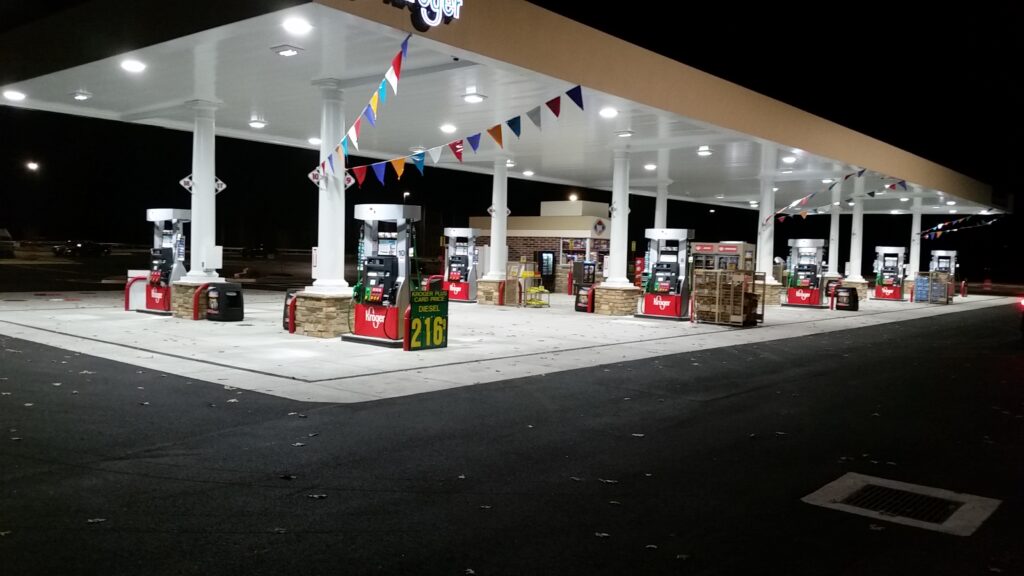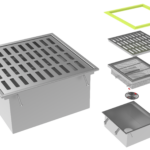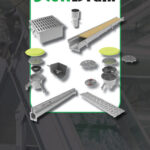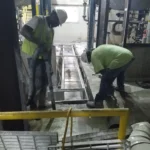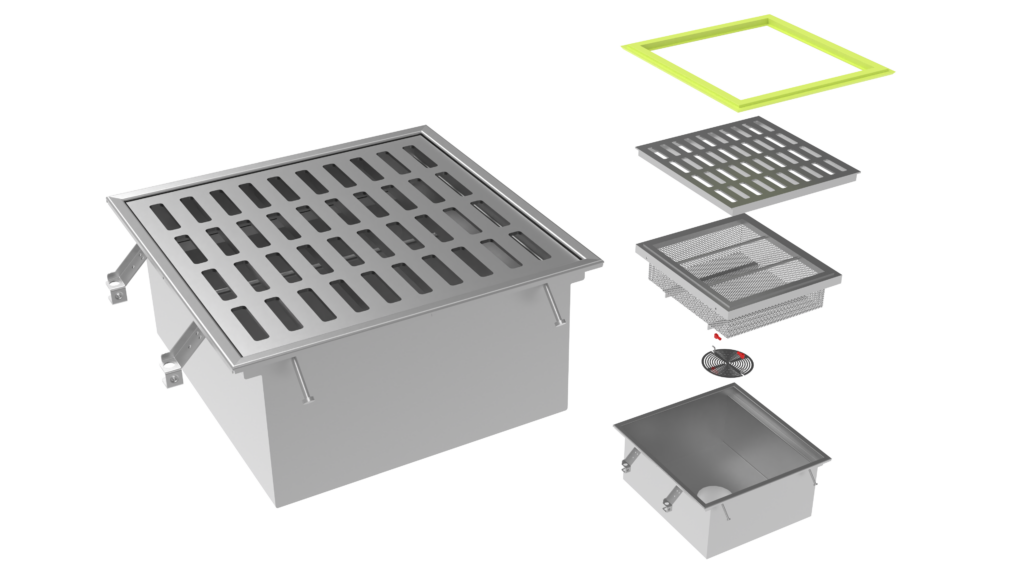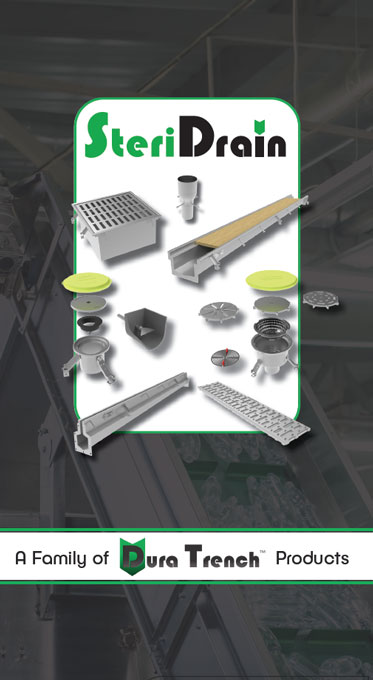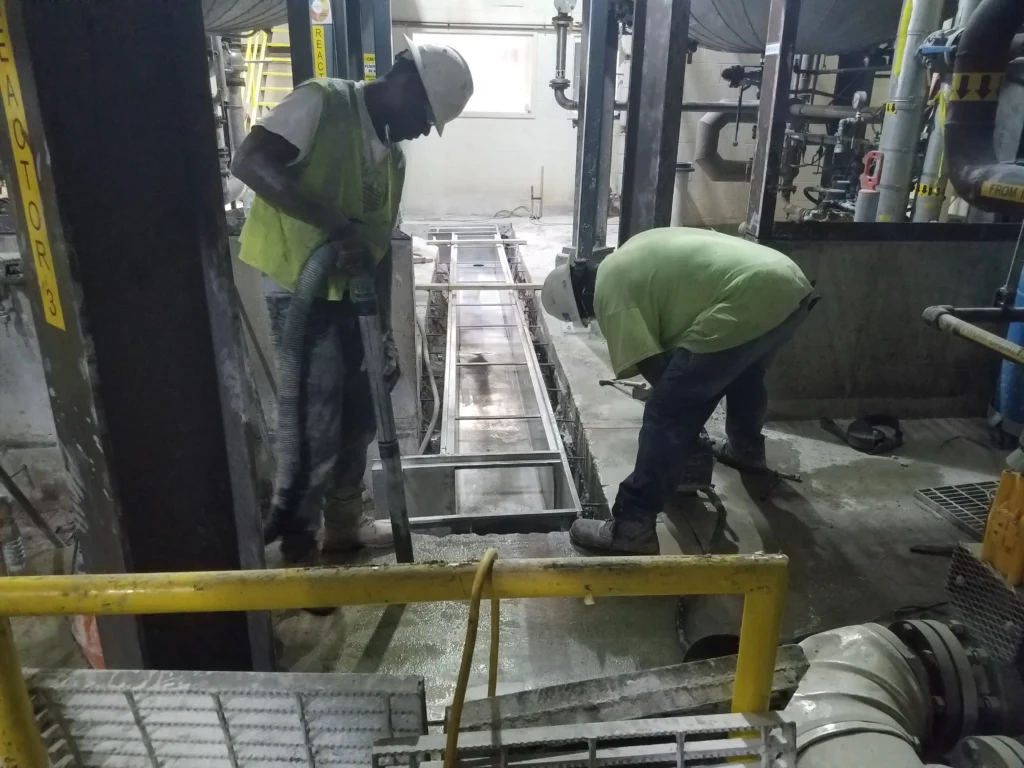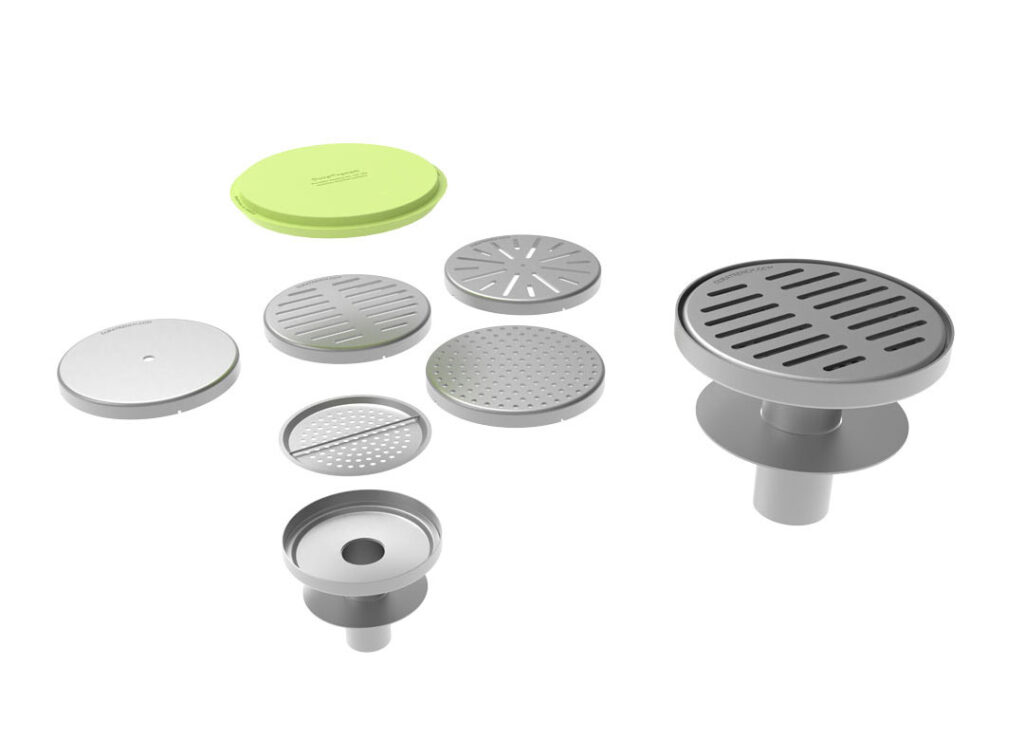Many customers wonder how long it takes for cast iron to begin to show signs of rust. This can be one of the main detractions to using this material in some locations and for some purposes. Being able to predict the timeline for characteristic red rust to appear on cast iron can help businesses and property owners decide if this trench drain material is right for their needs or not.
The answer to this question depends upon a variety of different variables. Location, rainfall, and other environmental conditions can all have an impact on the rust process. It is worth knowing what your expected weather patterns will be in your area before you decide if you think that cast iron will work out for your drainage installation needs. This information is key to the process of determining which kinds of materials are the most ideal for the trench drain products that you are going to use at your home or business.
Is Rust a Threat to the Strength of Cast Iron?
Cast iron actually has a relatively strong resistance to deterioration. Rust is a sign of chemical corrosion, and it can be a symptom of reduced strength in cast iron materials over time. This is one of the reasons that cast iron should not be exposed to lots of water and oxygen in combination. Cast iron is the most likely to suffer damage to its tensile strength when there is high humidity and also high moisture in the area where it is in use.
Cast iron in its natural state will be gray in color. When too much moisture is allowed to rest on the cast iron drainage system, rust can begin to form due to oxidations of the surfaces that have gotten moist. If it is very humid where you live or where your drainage is installed, the changes to the cast iron could happen in as little as 24 hours. This does not immediately mean that your drainage system is not going to hold up to continued use, but rust will do progressive damage over time to the surfaces that it has clung to.
Grates and all of the associated parts of your drainage system that are made out of cast iron will all be prone to rust if there is enough moisture in the air or if they are exposed to the wrong chemicals on a regular basis. Rust can appear essentially overnight on cast iron surfaces related only to rain or humidity in the air around the trench drain. This is one of the reasons that many people opt not to use cast iron for their drainage installation, but that does not mean that you might not want to pick this material for your situation.
What Causes Cast Iron to Rust?
The most common cause of rust on cast iron is exposure to water and oxygen on a frequent basis. However, other chemical reactions can lead to rust on cast iron as well. Salt is a key component in some situations where rust has reduced the strength of a cast iron surface. Bleach and vinegar can also be responsible for causing cast iron surfaces to rust.
Temperature also has an impact on the progression of the rusting process. Metals that are exposed to heat during the day and then experience a cooling-off process at night will tend to end up with moisture sitting on the surface of the metal. This kind of heating and cooling repeatedly can also lead to the cast iron becoming brittle as it is forced to expand and contract repeatedly throughout each day.
Factors That Can Help Predict Rust for Cast Iron Trench Systems
If you are worried about using cast iron for your trench drain system, you should be aware that there are many variables related to the rusting process. You will need to know how much rainfall your area or region gets each year, and you should also consider temperature shifts and the other environmental conditions and exposures that are listed above. If a limited number of these conditions apply to your situation, you could use a cast iron drain system for years without seeing any rust or any indication of changes to the nature of the metal in your drainage installation.
However, if you are exposing a cast iron drain system to lots of challenges with regard to weather, chemicals, and moisture, you might expect to see rust on your drainage system within a few months. This does not automatically mean that the metal will weaken rapidly due to the progression of the rust on the surface of the drainage system, but it can be a consideration related to making this choice for your drain system installation.
While cast iron is very sturdy and strong and also affordable, it can be the wrong solution for some areas where drainage installation is needed. You should be sure to speak with your installer to find out more about the conditions that your property brings along with it. Skilled and experienced technicians can come to your home or business and look at the condition of the soil as well as take the time to study the expected weather and rainfall patterns. These people will be able to make a recommendation about other materials that you might want to use in place of cast iron if moisture and heating, and cooling are likely to be an issue in your part of the country.
Leaning on the expertise of skilled installers can make a big difference in your experience with the drainage system that you have chosen to install. There are some locations where cast iron is not at all appropriate for a trench drain system and other areas of the country where this is the perfect kind of drain for you to use in your drainage solutions.
What Are Some Places Where Cast Iron is Not Appropriate?
There are some locations that are automatically going to be too antagonistic to cast iron material for this kind of drainage system to be installed. Breweries and food processing plants are not good places for the use of this kind of material. You should also be wary of the use of cast iron in places where seawater might be flowing through the drainage system, or there is a high salt content in the soil.
Companies that work with chemicals on a daily basis will also want to avoid cast iron trench drains, and businesses or homes where there is high humidity should also cross this material off their list. Making sure that you have installed a drainage system that is perfect for your region of the country and your intended use can make all the difference when it comes to the performance of your drainage installation.
There are many other materials that you can use for your trench drains if you are not able to use cast iron. Working with a skilled installer will take much of the guesswork out of this part of the selection process, and you can lean on the advice of these skilled parties when it comes to planning out your trench drain system from start to finish. Cast iron can be a really ideal selection for some areas of the country and some applications, but it is not right for everyone who needs to create a drainage solution on their property.
The use of cast iron for drains might also be fine, or you might need to use different drain and grate covers to help preserve the integrity of your drainage system. The entire drainage solution might not prosper when it is made from cast iron, but you could choose components made of different materials for your use case.
Cast Iron Surfaces Can Rust at Differing Rates
Cast iron can rust at different rates, and this is something that people who are looking at trench drain installation should be aware of. This can be the perfect material for your trench drain installation, but you need to be aware of the limitations of this kind of material in certain environments. Cast iron can be ideal for very specific places, and your installer should be able to advise you about which kinds of regions of the country and which kinds of properties are perfect for this kind of trench drain.
Using the right materials for your trench drain installation is important, and it can make all the difference when it comes to the longevity of your drainage solutions. These kinds of choices can have a lot to do with how happy you are with the work that you have done or your own work doing the installation of a prefabricated drain.
Knowing how much moisture your area receives every year, as well as the conditions that your cast iron will be exposed to related to heating and cooling, will help you determine if this is the right kind of material for your trench drain installation.

